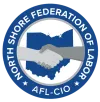POLICY TRACKER
EXECUTIVE ORDERS
| DATE | TITLE | SUMMARY |
| 1/20/2025 | Return to In-Person Work | The executive order, part of Project 2025, would end telework flexibility for federal employees, forcing them back to physical offices. This disrupts work-life balance, weakens telework-related union agreements, and may lead to job cuts or relocations, undermining federal unions' ability to protect workers’ rights and conditions. This directive turns back the clock to before 2010 when Congress required federal agencies to expand telework by law. Congress took this action a full decade before the pandemic, recognizing telework as an important tool for agencies’ operational efficiency. |
| 1/20/2025 | Hiring Freeze | The executive order, part of Project 2025, would block new government hires, increasing workloads for existing employees. This weakens unions by limiting membership growth, straining collective bargaining power, and justifying outsourcing to private contractors, reducing job security and public-sector union influence. |
| 1/20/2025 | Restoring Accountability to Policy-Influencing Positions Within the Federal Workforce | The executive order, part of Project 2025, aims to reclassify thousands of federal employees as at-will workers, making them easier to fire. This weakens union protections, undermines collective bargaining, and threatens job security for federal workers by politicizing employment decisions. |
| 3/14/2025 | Rescission of Labor-Management Forums | An executive order rescinded previous mandates that established labor-management forums designed for collaborative discussions between union leaders and agency management. This action may reduce avenues for unions to engage in dialogue with federal agencies on workplace issues. |
| 3/14/2025 | Removing PLA Requirements | The Trump administration’s executive order rescinds previous mandates that required the use of Project Labor Agreements (PLAs) on federal construction projects. This move directly undermines job opportunities for union workers, reducing their access to fair wages, benefits, and working conditions on these projects. |
| 3/20/2025 | Dismantling of the Department of Education | The administration unilaterally dismantled the U.S. Department of Education, reallocating its functions to other federal entities. This action threatens civil rights protections and key educational functions, potentially impacting unionized educators and staff. |
| 3/27/2025 | Elimination of Federal Workers’ Bargaining Rights | The administration issued an executive order rescinding collective bargaining rights for federal employees, effectively stripping unions of their ability to negotiate contracts. This move undermines workplace protections, weakens federal unions, and jeopardizes job security for hundreds of thousands of government workers. |
MEMORANDUMS
| DATE | TITLE | DESCRIPTION |
| 1/31/2025 | Limiting Lame-Duck Collective Bargaining Agreements… | Trump’s memo restricts outgoing administrations from finalizing union contracts before a new president takes office. This weakens federal unions by delaying negotiations, allowing hostile administrations to impose anti-labor policies, undermining job security, and limiting worker protections previously secured through collective bargaining agreements. |
| 2/6/2025 | Federal Workforce Reductions | The administration issued a memorandum directing federal agencies to develop plans for significant employee layoffs and program consolidations. This move aims to reduce the federal workforce by approximately 200,000 positions by the end of 2025, potentially affecting services such as veterans' healthcare and disability programs in education. |
LEGAL CHALLENGES
| TITLE | DESCRIPTION | STATUS |
| Attempted Elimination of the Department of Education | Unions, including the AFT, have sued to block the dismantling of the Department of Education without Congress' approval, citing harm to education. The lawsuit is ongoing, with the Department of Education asserting it will continue essential programs. | Pending |
| Challenge to DOGE's Access to Sensitive Information | Unions have sued to stop the Department of Efficiency Government (DOGE) from accessing private data, alleging privacy violations. A judge issued an injunction halting DOGE's data collection. The injunction remains in place while the case continues. | Pending |
| Stripping TSA Workers of Bargaining Rights | The American Federation of Government Employees (AFGE) has sued the Trump administration, arguing that stripping TSA officers of union representation is illegal and unconstitutional. Terminating the TSA collective bargaining agreement stripped 47,000 security officers of their union rights. | Pending |
LOCAL LEGISLATION
| CITY | ORDINANCE NO. | TITLE | POSITION |
| Cleveland | 104-2025 | AN EMERGENCY ORDINANCE To supplement the Codified Ordinances of Cleveland, Ohio, 1976, by enacting new Sections 669.01 to 669.07 and 669.99 relating to unlawful discriminatory salary practices; and to amend various sections of the codified ordinances. | SUPPORT |
